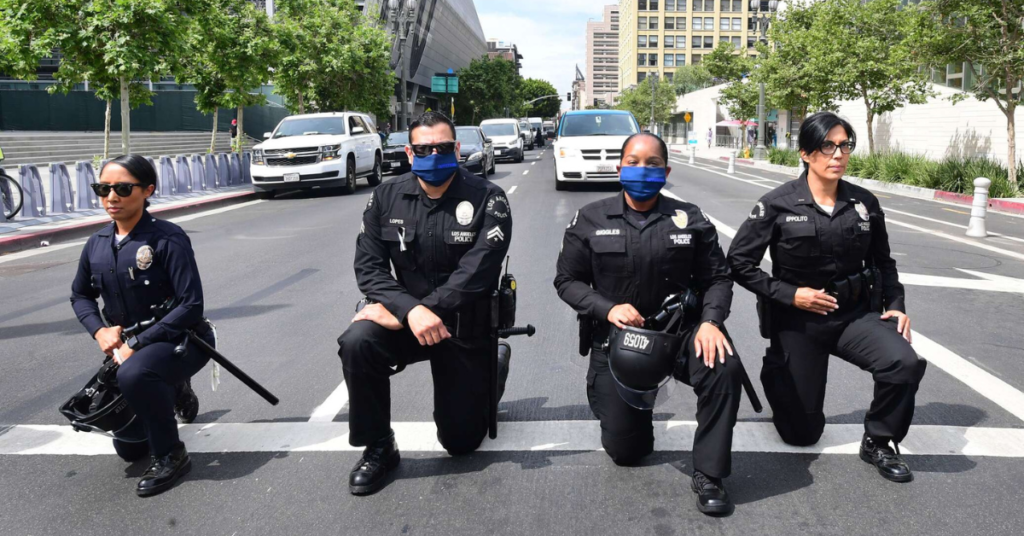As the UK faces growing challenges in maintaining public safety, the role of security professionals has never been more critical. From rising crime rates to civil unrest, there is increasing pressure on law enforcement to respond to a wide range of threats. However, with the police force facing its own set of challenges, including workforce shortages and budget cuts, private security officers are increasingly stepping up to fill the gap. The need for well-trained and highly skilled security professionals is now essential and urgent to support the nation’s police forces in safeguarding communities and maintaining public order.
A Pressing Need for Support
In recent years, the UK police force has seen a significant decline in numbers. With over 149,164 police officers spread across England and Wales (Home Office, 2023), the strain on resources has become apparent as they try to manage rising crime and public disorder. At the same time, the private security industry has reported a shortage of around 60,000 security officers, according to the Security Industry Authority (2022), highlighting the immense pressure felt across both sectors. The role of private security is no longer limited to guarding commercial properties or monitoring CCTV cameras. Security officers now find themselves at the forefront of public events, large gatherings, and even providing assistance in times of civil unrest. Their presence can significantly reduce the burden on police forces by offering additional manpower, ensuring that police officers can focus on more critical law enforcement activities.
The Expanding Role of Security Professionals
Security professionals are increasingly called upon to support policing efforts, particularly in managing events such as protests, concerts, and other public gatherings. Their involvement helps maintain order, prevent escalation, and ensure the safety of the public. With the 2024 riots and cost-of-living protests hitting major UK cities, it has become clear that more hands are needed on deck to maintain peace (BBC News, 2024). This is where well-trained, professional security personnel can make a real difference. For instance, during large protests or demonstrations, security officers can handle tasks like crowd control, leaving police free to focus on potential criminal activity or emerging threats. Moreover, as terrorism remains a constant threat, with the UK remaining at a substantial threat level, security professionals play a critical role in preventing attacks through monitoring, surveillance, and reporting suspicious activity (JTAC, 2023). This dual approach of private and public security efforts ensures that both preventative and responsive measures are in place, providing a comprehensive approach to maintaining public safety.
Quality and Training: The Key to Effective Support
However, it is not just about increasing the number of security professionals. The quality and training of these individuals is paramount. Well-trained security officers, equipped with skills in conflict management, crowd control, and emergency response, can act as a crucial extension of the police force. They can help de-escalate tense situations, ensuring that incidents do not spiral out of control. There is a clear demand for upskilling security professionals to ensure they are ready to handle the complex and evolving challenges facing the UK today. Courses offered by institutions like Cambridge Academy of Risk Management aim to equip security professionals with advanced knowledge and practical skills, enabling them to not only support law enforcement but also to act independently in various critical situations. The focus is not just on basic security functions, but on creating well- rounded professionals who understand the broader security landscape and can adapt to diverse challenges, from cyber threats to public disorder (BSIA, 2023).
A Call for Capacity Building
In the face of growing threats, from cybercrime to terrorism to public protests, the UK needs a stronger, more skilled security workforce. Capacity building in the security sector must be a priority. This means not only addressing the shortage of officers but also enhancing the training and professionalism of those already in the field. By doing so, security officers can better support the police, ensuring a safer, more secure environment for all. This is where private institutions can play a pivotal role. Cambridge Academy of Risk Management, for example, is leading the charge in offering specialised training programmes designed to meet the current demands of the security industry. By providing high-level training and professional development opportunities, we aim to address both the quantitative and qualitative gaps in the UK’s security workforce. Our programmes are tailored to equip professionals with the skills they need to effectively contribute to public safety, enabling them to fill critical roles and ensure the UK remains resilient in the face of modern security challenges.
Conclusion: A Collaborative Future
In a world where the lines between public and private security are becoming increasingly blurred, the need for collaboration between the police and security professionals is more important than ever. Well-trained, highly skilled security officers are not just an additional resource; they are a vital part of the UK’s overall strategy for maintaining law and order.
As the security landscape evolves, so too must the approach to security training and workforce development. By investing in both the quantity and quality of security personnel, we can build a safer, more resilient future for the UK, one where the police and private security work hand in hand to protect the public and uphold the rule of law.
References
BBC News. (2024). Cost-of-living riots in London: What’s behind the unrest? BBC.
https://www.bbc.co.uk
Home Office. (2023). Police workforce data, England and Wales.
Joint Terrorism Analysis Centre (JTAC). (2023). UK terror threat levels.
Security Industry Authority (SIA). (2022). Licensing requirements and the impact on
the workforce.


